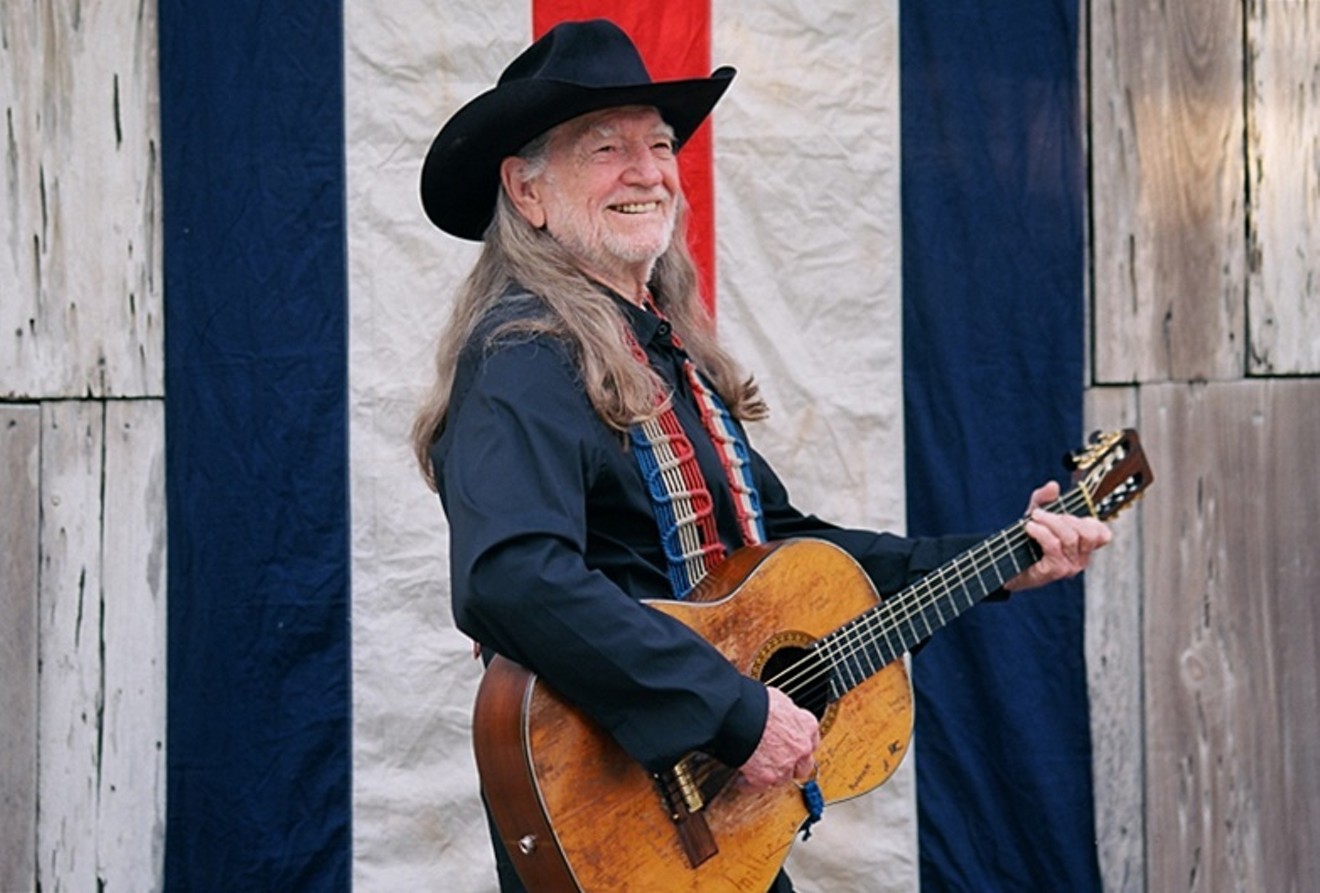Few American musicians are better at hitting this nonspecific emotional target than Willie Nelson. As a songwriter, he has written dozens of indelible passages in our national songbook, and as a performer, many of his cover versions of other people's songs have become iconic in their own right. That's one of the reasons we didn't include him in our list of iconic country songs: He's made too many to count, and too many that can be appraised beyond the confines of that solitary genre.
Ahead of Nelson's two-night run at Celebrity Theatre here in Phoenix, we've recounted some of his finest moments in popular music, whether they be crossover hits or feats of pop composition in their own right. No matter who performed or wrote them, each contains his distinctive touch.
'Crazy'
Many of Nelson's finest moments as a pop composer came early in his career, when he was better known for his solo work than as a songwriter-for-hire. Case in point: There's barely anything country about "Crazy," with its simple, nonspecific lyrics about being in love, and there's no reason it couldn't have crossed over onto the pop charts if it were covered by the right artist, as was customary in those days. Any rock and roll band or R&B group of the early '60s easily could have adapted the song into a even bigger hit, but it was Patsy Cline, by then herself a major force in country music while Nelson was just getting his start, who took the tune to No. 2 on the country charts. His own version, with his trademark laconic vocal delivery, appeared on his 1962 debut album ...And Then I Wrote; other songs on the record also became hit covers for other artists, but songs like "Night Life" and "Funny How Time Slips Away" helped Nelson, then only in his late 20s, establish the world-weary, failed-romantic persona he'd carry for the rest of his career.'Blue Eyes Crying in the Rain'
Although he'd been a moderately successful songwriter for years, it wasn't until "Blue Eyes Crying in the Rain" that Nelson became a star in his own name. Released in the midst of the outlaw country wave that he rode so well, his record Red Headed Stranger was like nothing the genre had seen before: a concept album with an operatic story of love, infidelity, regret, and redemption. Rather than write the entire thing himself, Nelson took a novel approach of using existing songs, including the title track, within the larger story, linking the record to a greater canon of country music. "Blue Eyes" would be the climax of the operatic tale of the Stranger, who sings the sad tale just after he has dramatically murdered his unfaithful wife.Despite its grisly placement within the album's story, the song by itself became a huge hit thanks to its poetic lyrics about lost love ("Love is like a dying ember / And only memories remain"). It gave Nelson his first No. 1 on the Billboard Hot Country Songs chart, reached No. 21 on the Hot 100, and was later ranked among Rolling Stone's 500 Greatest Songs of All Time. Red Headed Stranger was later made into a film starring Nelson, although it wouldn't be his first time on the silver screen ...
'On the Road Again'
Here it is: the all-time, iconic road-tripper's anthem, the one featured in countless movies and commercials to the point that it's become something beyond a cliché. Yet there's a reason it's ended up that way: "On The Road Again" is one of the most purely joyful pop tunes of its era, a wonderfully carefree tune that perfectly expresses the freedom of the road and the thrill of hitting the highway "like a band of gypsies ... insisting that the world keep turning our way." Nelson even wrote the song on the road, in a way: He scribbled out the lyrics on an air sickness bag after earning the starring role in the 1980 film Honeysuckle Rose, in which he played (get this) a country musician who tours across the country. The film may not have survived the test of time — Roger Ebert called it "predictable" — but the tune, an Oscar nominee for Best Original Song that went to No. 20 on the Billboard Hot 100, has become a classic.
'Always on My Mind'
Nelson wasn't aware that Elvis Presley had made his own version of "Always on My Mind" when the song's writer, Johnny Christopher — then working as Nelson's session guitarist — suggested they cover it. When they did, it was as though a fuse were lit: The 1982 recording spent two weeks atop the Billboard Hot Country Singles chart, made it to No. 5 on the Hot 100, and won three Grammys, including Song of the Year. Somehow, Nelson and Christopher had turned a minor, late-career hit for The King into a phenomenon — the recording has been featured in an ASPCA ad, and received its own synthpop cover from Pet Shop Boys in 1987 — but when we actually listen to the song, it's not hard to see the appeal. Again, it's Nelson's authenticity, his voice tinged with hardship, that makes the sad song reach into us. We believe the regret he's singing about is real, and for all we know, it is.
Willie Nelson and Family. With Anna Vaus. 7:30 p.m. Monday, May 20, and Tuesday, May 21, at Celebrity Theatre, 440 North 32nd Street; 602-267-1600; celebritytheatre.com. Tickets are $71 to $181 via Ticketforce.











